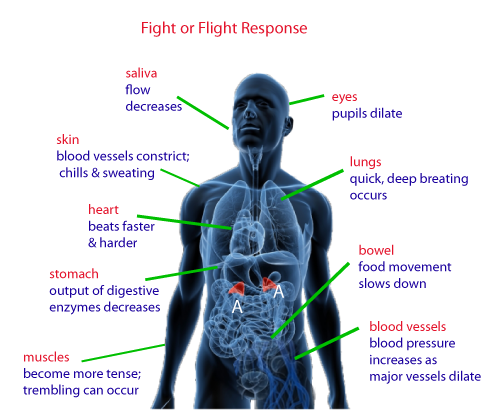An area in martial arts/personal defense rarely discussed and often hidden that many don’t want to relive or address, but have experienced: “A couple of points here regarding third-party intervention problems (or self-defense, in general) and faulty communication with/expectation of students. I’ll throw my own ass on the fire from humbling personal mishandling earlier in life, admittedly making this somewhat subjective experience:
1. There is often a miscalculation on the extremely powerful effects of adrenaline/ASR/tachypsychia. (confusion over which avenue to go-fight/flight/fright, underestimation of the flight/fright responses, decision-making loops) For many with long-term training, coupled with misinformation as to these effects, it can be a crippling in-moment realization where, if having survived, shame and disillusion can ensue regarding one’s training or flaws in it, being in a very machismo-driven industry. (I have zero doubts that a ton of people likely will respond to the most recent subway stabbing incident, for example, with “How could this happen?!! There were 3 of them!!”)

2. There is often an over-assessment of the situation and one’s own abilities to “solve” it. This goes back to the “When taught to train for perfection/beauty, even successful chaos management is deemed a failure”. Our perception of what successful survival is can be skewed if our training led us to believe it had to “look” or “be” a certain way, and this can lead to unrealistic expectations. An mid- or pre-conflict self-doubt can creep up, a faulty view of “it didn’t go this way in the dojo” (zero or minimal pressure-testing) or a shutdown of access to previously-trained abilities can rear its ugly head.
These 2, to me, are huge points that are most often neglected in much traditional training and do a huge disservice not informing students.

3. Many times, there is a combination of both of the above simultaneously, which will simply inhibit the person from reacting at all, reacting erroneously (overreacting or underreacting), or reacting with an incongruent response to the situation (response doesn’t fit the situation)
No, not everyone will react like this and, no, not even experienced people will avoid this all of the time (each event is scenario-specific and unique unto itself) but it, from my experience, definitely points out innate and integral parts of training, or at the very least discussion, that are missing.
